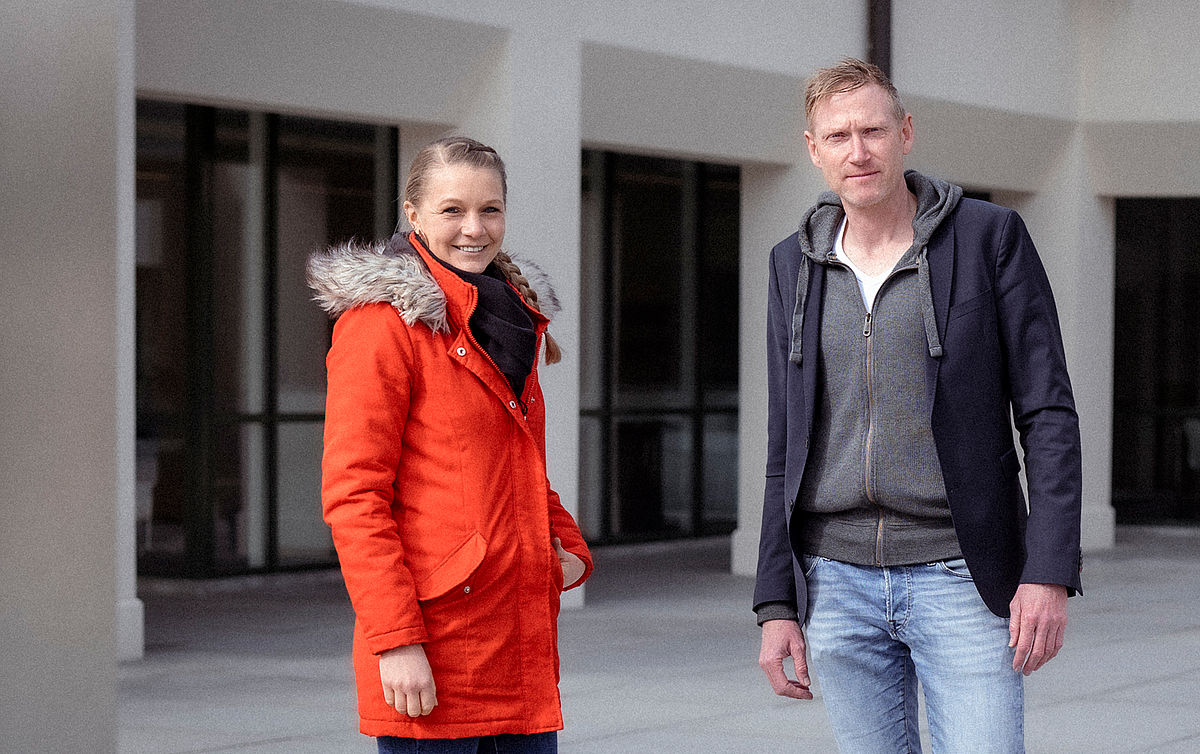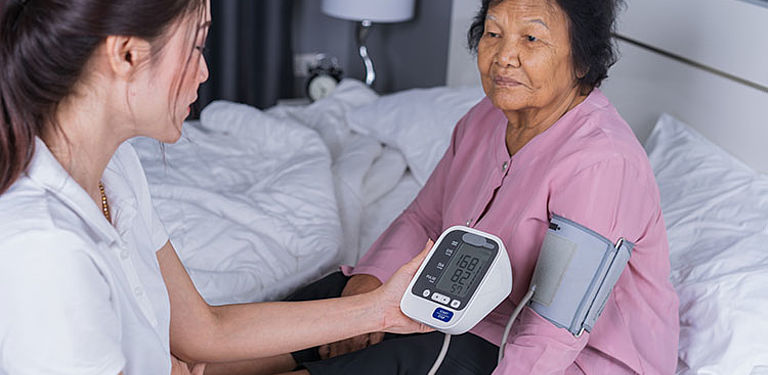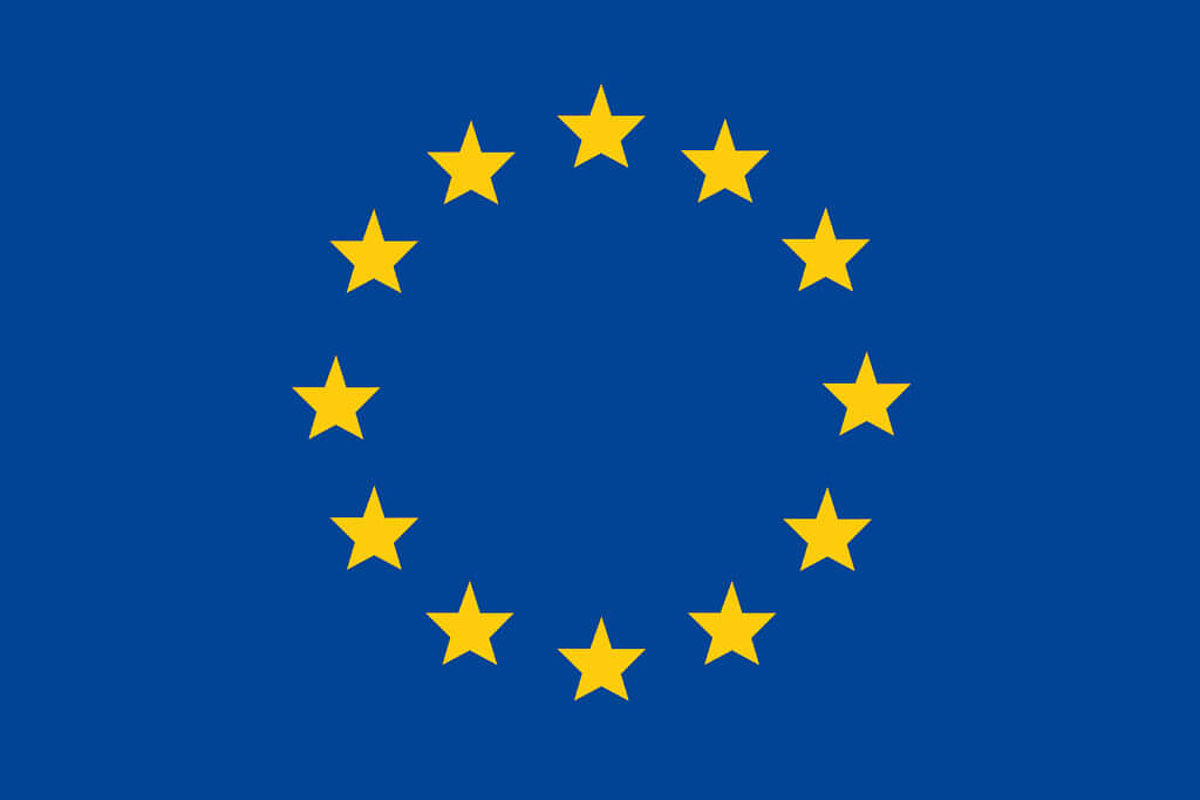A manikin doll marked with black Xs is used to warn about the consequences of diabetes. This "silent" disease can damage the eyes, heart, and liver. The manikin appears in a series of ads that early career researcher Manuela Fritz sent to Facebook users in the Indonesian cities of Jakarta and Yogyakarta.
Playing the video will send your IP address to an external server.
Fritz conducts economic health research in Southeast Asia at the Chair of Development Economics at the University of Passau. She conducted the Facebook experiment in order to determine whether the network could be used to reach out to prospective patients who are unaware of their risk of developing diabetes. Fritz’s research confirmed that Facebook was a particularly cost-effective and efficient tool for reaching at risk patients. Fritz explains: "Based on the study results and some general underlying assumptions about professional screenings following the self-screening, we can say that such a campaign allows to identify a case of diabetes that would otherwise go undiagnosed for as little as 9 dollars." "The fact that so many people can be reached using such modest funds makes this medium particularly attractive for countries with only a limited budget for healthcare," says Professor Michael Grimm, who holds the Chair of Development Economics and acted as supervisor and co-author of the project.
Diabetes Prevention Using Facebook Advertising
In Southeast Asia, diabetes has become a common lifestyle disease. According to the Center for Disease Control and Prevention, it is the third most common cause of death in Indonesia. Moreover, the number of undiagnosed cases is very high. People living in the Indonesian city of Jakarta or in the region in and around Yogyakarta are particularly affected. As a result, Fritz specifically targeted users in these cities over 35 years of age with her Facebook ads. To ensure that she could reach as many people as possible, she applied no further restrictive criteria. Facebook is especially popular in Indonesia. Roughly 72 percent of Indonesians use the networking service.
The Campaign: "Where there is sugar, there is diabetes"
The campaign called "Ada Gula, Ada Diabetes" ran from mid-March to the beginning of April 2022. To ensure that the design and wording of the ads appealed to an Indonesian audience, the researchers collaborated with Indonesian web designer Benedictus Praditya. The name of the campaign is a play on an Indonesian saying and roughly means that too much sugar can lead to diabetes. The ads link to a website that provides information on the disease and to an online self-test for diabetes developed by the Passau team specifically for the research project. Fritz tested five different ads, each with a different motif and wording. Two of them warned about the consequences in a fairly drastic and shocking manner, whereas the others drew attention to diabetes via references to such things as the incidence of the disease in specific regions as well as religion and family.
Overall, the imagery used, including the motifs, was rather subdued in comparison to the warnings on cigarette packages. The reason for this was that Facebook would censor any images deemed too sensitive. Despite this, the researchers were able to establish a clear trend in the impact of the various ads.
The Results in a Nutshell
- Within a mere three weeks, the campaign garnered 758,977 impressions, reaching 286,776 users overall, 5,274 of whom clicked on the link leading to the website. Of this group, 1,469 went on to complete the diabetes self-test.
- In terms of the impact of the ads, the ads that warned of the health consequences of diabetes were the most successful. The likelihood of following the link to the website was 23 percent higher among the users who saw the ad featuring the manikin doll mentioned at the start of this article. This effect was stronger among women than men.
- Female users were generally more likely to be activated by the campaign. Although they represented a smaller percentage of the total number of people reached on Facebook, they were 25 percent more likely to complete the diabetes self-test. Older users aged 65 and over often clicked on the ad but were less likely to complete the diabetes self-test than users in younger age brackets.
- 53 users declared themselves willing to take part in a follow-up survey conducted by the researchers. The follow-up survey probed whether the participants had arranged an appointment for a professional examination by a physician after having completed the self-test. Around one third answered in the affirmative.
- Reasonable assumptions regarding the uptake of professional screenings following the self-screening imply a cost of 9 dollar per newly diagnosed case.
Study within the Scope of the EU Horizon 2020 SUNI-SEA Project
"The results of our survey indicate that the campaign caught the attention not only of people already sensitised to diabetes but also a considerable proportion of people who were unaware of their risk status," says Fritz. The study, which is available as a working paper, was conducted within the scope of the EU Horizon 2020 SUNI-SEA project, whose members include the Chair of Development Economics. The purpose of this project is to evaluate existing prevention programmes against endemic diseases such as diabetes in Southeast Asia and to study how highly effective measures can be enhanced and expanded. Alongside researchers from the University of Passau, the team included computer scientist Ingmar Weber, who is Alexander von Humboldt Professor of Artificial Intelligence at Saarland University, and Elad Yom-Tov from Microsoft Research in Herzliya and the Israel Institute of Technology in Haifa.
International connections through doctoral research
The study formed part of Fritz’s doctoral thesis, which she is writing in pursuit of a double doctoral degree at the University of Passau and at the University of Groningen in the Netherlands. Fritz completed her master’s degree in development studies at the University of Passau and has written two other articles connected with her thesis that deal with issues related to health economics. In one of these, she examines the effects of climate change on patients with diabetes and cardiovascular disease. Her research uses micro-economic and micro-econometric methods drawing on health insurance data as well as data from social networks, geodata, climate simulations, and health simulation models. Fritz plans to continue her research in a post-doc position at the University of Groningen in the Netherlands within the framework of the SUNI-SEA project.
Text: Kathrin Haimerl, Research Communication Officer
The story was first published on the portal Research in Bavaria
Professor Michael Grimm
What are the measures that enable developing countries to participate in global market processes?
What are the measures that enable developing countries to participate in global market processes?
Professor Michael Grimm has held the Chair of Development Economics of the University of Passau since 2012. He is also one of the Principal Investigators of the DFG Research Training Group 2720 "Digital Platform Ecosystems (DPE)". Prior to this, he held the posts of Professor of Applied Development Economics at Erasmus University Rotterdam, Visiting Professor at Paris School of Economics and Advisor for the World Bank in Washington, D.C. (United States).
EU-project SUNI-SEA: Fight against 'silent killers' in Southeast Asia
High blood pressure and diabetes have also developed into widespread diseases in Southeast Asia. A team from the University of Passau is participating in the EU project SUNI-SEA, which aims to massively increase effective prevention.







![Ad “Religion” - English: “and do not throw [yourselves] with your [own] hands into destruction” (Q.S. Al-Baqarah, 2:195). Diabetes can be prevented and controlled. Learn about your diabetes risk now! Ad “Religion” - English: “and do not throw [yourselves] with your [own] hands into destruction” (Q.S. Al-Baqarah, 2:195). Diabetes can be prevented and controlled. Learn about your diabetes risk now!](https://www.digital.uni-passau.de/fileadmin/_processed_/9/7/csm_Ad6_ece784b159.png)






